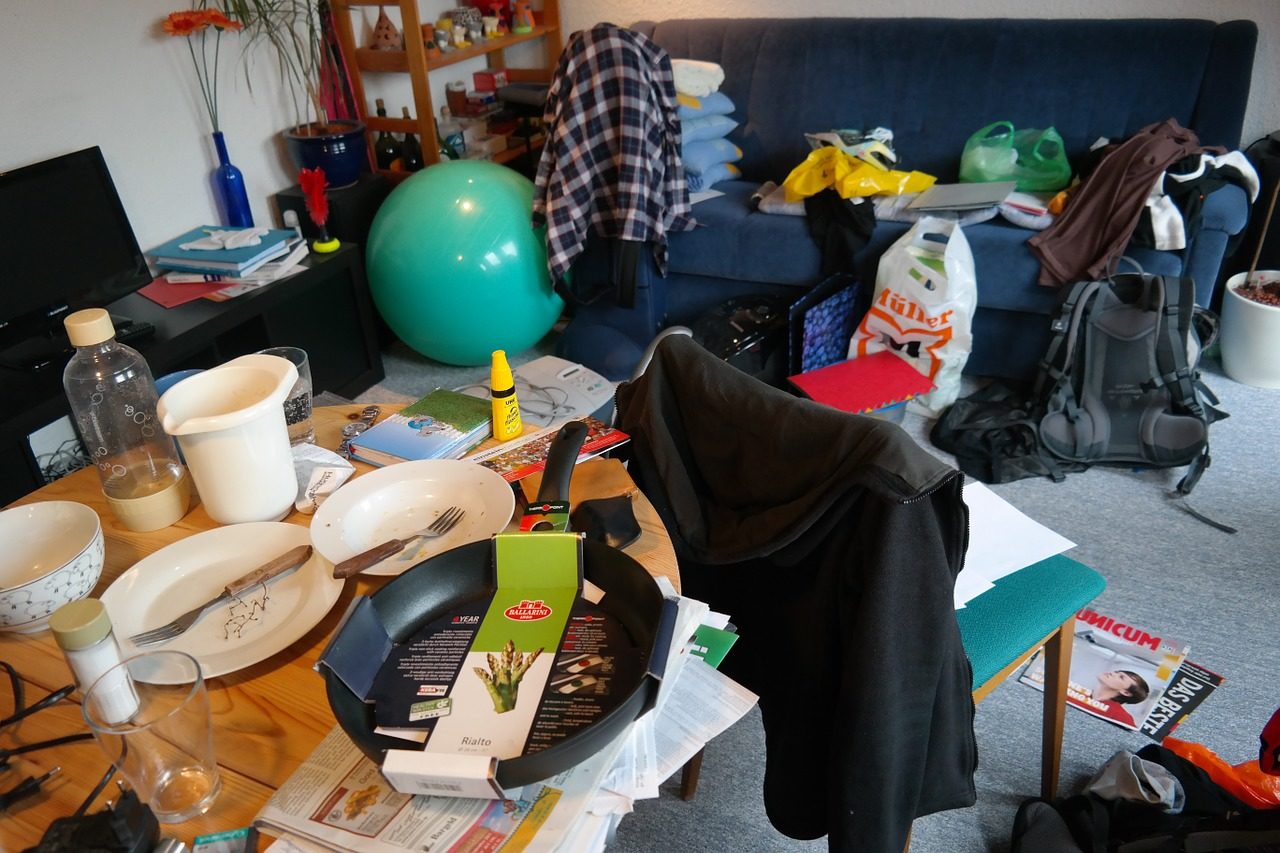Contents
In my books Clutter is a synonym for Chaos. More precisely this is how my brain sees it. It wasn’t at all like that when I was younger. I wouldn’t even notice all the mess around me. It changed with years (like many other things 🙂 ). Now I get overwhelmed, restless and distracted from the task at hand if things are not in their right places.
I don’t know how you deal with it, but I worked out two simple strategies for myself:
- I minimize the number of things I have.
- Everything has its place.
Minimize the number of things
Few rules for this strategy:
1. Minimizing storage space
During our last renovation I deliberately reduced the number of cupboards and built-ins in the house. My approach to minimize the storage would really stress our builder – everybody always asks him to build more storage space, not less. He kept warning me that we won’t have enough space to keep all our stuff. My reassurance that we can actually minimize our stuff to fit the available storage didn’t seem practical or realistic to him.
2. Reviewing all your stuff regularly
Things have a tendency to multiply and I have a natural tendency for collecting them. So, I need to do a review of everything I own on a regular basis.
I keep it simple:
- Kitchen pantry, medical cabinet and chemicals – checking due date of all the content every 6 months.
- Clothes – review at the end of each season. If something hasn’t been worn for the whole year at least once, it has to go. I have to admit that I still have difficulty applying this rule to my shoes 🙁 . Something to work on!
- Papers – letters get opened every evening and either recycled or filed immediately (this is a habit from working for years in the Activity-Based environment where no one even has their own desk – you learn to travel light 🙂 ).
- Emails – my inbox is emptied every day and everything is moved to the proper folder (work habit).
3. Don’t buy as if you prepare for the apocalypse
Sales are always very tempting. I am disciplining myself not to buy more than I need, even if I can get two for the price of one. Hard, but it actually can be done:).
4. Not everything should have utilitarian value
Some things I keep for years, like books and art works. As much as I love them, they are not completely exempted from the rule. I look at them every few years to see how I feel about them. Everything that makes me feel good – stays. Anything that lost its appeal for me – goes.
Everything has its place
In my opinion this is actually the key for having a clutter-free space. It requires some thinking and planning, but done once and it will free you from whining/nagging irritation and constant waste of energy. Now, when I see something I like and consider buying, my first thought is ‘do I have a place for it in the house?’ If the answer is ‘no’, it helps to avoid the purchase.
Well, most of the time … 🙂
Sharing Space:
Please tell us about your strategies for dealing with clutter.

Facebook Comments